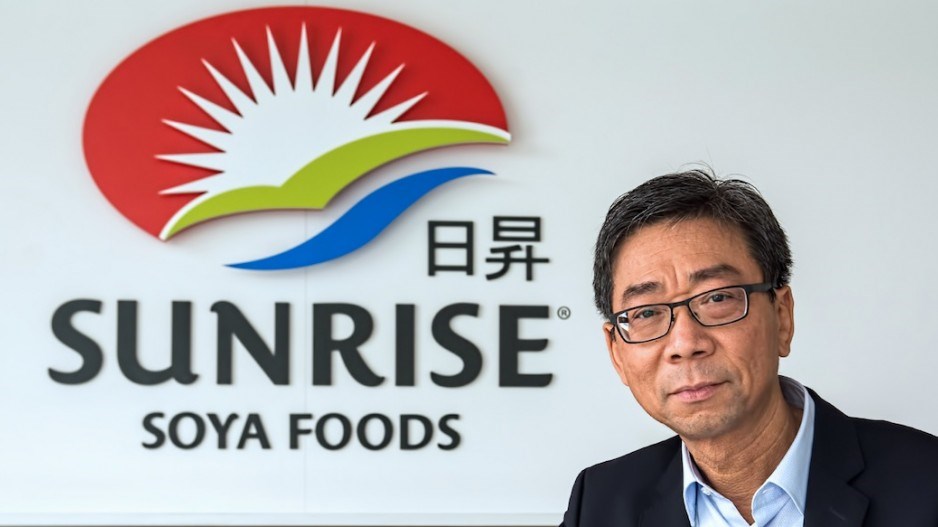The sudden success of Beyond Meat Inc. is part of the larger trend of consumers finding alternatives to meat — a phenomenon that is also helping traditional tofu manufacturers.
Los Angeles-based Beyond Meat has been around for a decade but has gained a huge following in the past year in part because it has debuted on menus at locally owned restaurant chains, such as A&W Canada, Fatburger Canada, White Spot and Earls. Canadian icon Tim Hortons will continue selling Beyond Meat burgers in B.C. even though it is scaling back sales in some parts of Canada.
Beyond Meat’s US$25-per-share initial public offering in May raised more than US$240 million, and its share price increased more than 850 per cent, before settling to trade at around US$132.
The recent investor giddiness is for a concept that is not radically new.
Vancouver’s Yves Potvin created Yves Veggie Cuisine, and what he touted as the world’s first veggie dog, in the 1980s. He followed that up with plant-based burgers and then sold the venture in 2003 to Hain Celestial Group for a reported $54.1 million.
Potvin then created Garden Protein International in Richmond and set his sights on creating plant-based substitutes for centre-of-the-plate protein, such as chicken tenders sold under the Gardein brand. Potvin and private equity firm TSG Consumer Partners sold that business in 2014 to Pinnacle Foods for $175 million.
Impossible Foods Inc. is also a Beyond Meat competitor.
“We’ve got six menu items that are plant-based,” said Earls CEO and co-owner Stan Fuller. “I don’t believe it is a fad. The young people believe in it. Just for health reasons some people are going to adopt it part of the week.”
Fuller said these are the “early days” for restaurants of having access to a reliable supply of plant-based protein for burgers, and that in time the price will come down, and that this will attract even more customers.
Beetbox launched Oct. 10 at 1074 Davie St. and aims to capitalize on the trend with a 100 per cent plant-based menu.
Traditional tofu manufacturers are also coasting on increased demand for plant-based protein.
“We’re in a special place where people see our products alongside veggie products in stores,” said Sunrise Soya Foods CEO and owner Peter Joe, whose parents founded the East Vancouver-based company in the 1950s.
This summer, he opened his company’s third, and largest, manufacturing facility: an 85,000-square-foot facility in Delta.
He also added a second production line last year to Sunrise’s 17-year-old, 65,000-square-foot manufacturing plant in Toronto. All the while, the company’s original 55,000-square-foot manufacturing plant on Powell Street continues to churn out product.
Joe estimated that about:
•57 per cent of the company’s revenue comes from plain bricks of tofu;
•19 per cent comes from flavoured bricks;
•19 per cent comes from soft-tofu flavoured desserts; and
•five per cent comes from selling soy drinks, which a third party manufactures.
Revenue is in the tens of millions annually and growth has been in the single-digit percentages, Joe said, before adding that if he can find capable recruits, he could add another 50 employees to his current 250-person workforce by the end of the year.
Joe is aware of the successes of Beyond Meat and Potvin’s past ventures.
He also knows that grocery chains are increasingly willing to place meat alternatives near meat products — something that could help sales.
The U.S.-based giant Kroger, for example, said last month that it plans to launch a 20-week test this fall by having plant-based protein sections in its meat aisles at 60 locations in parts of Indiana, Illinois and Colorado.
Many Vancouver grocers have thus far placed the items in the produce section.
Joe is reluctant, however, to expand his operations into producing similar plant-based protein products made from a mix of pea and other proteins because sticking to 100 per cent soybean products carries less risk.
“We feel that tofu is something we’re good at,” he told Business in Vancouver. “We’re in a leadership position with three plants and we want to focus on our core [products] and things we can be good at.”
gkorstrom@biv.com
@GlenKorstrom



